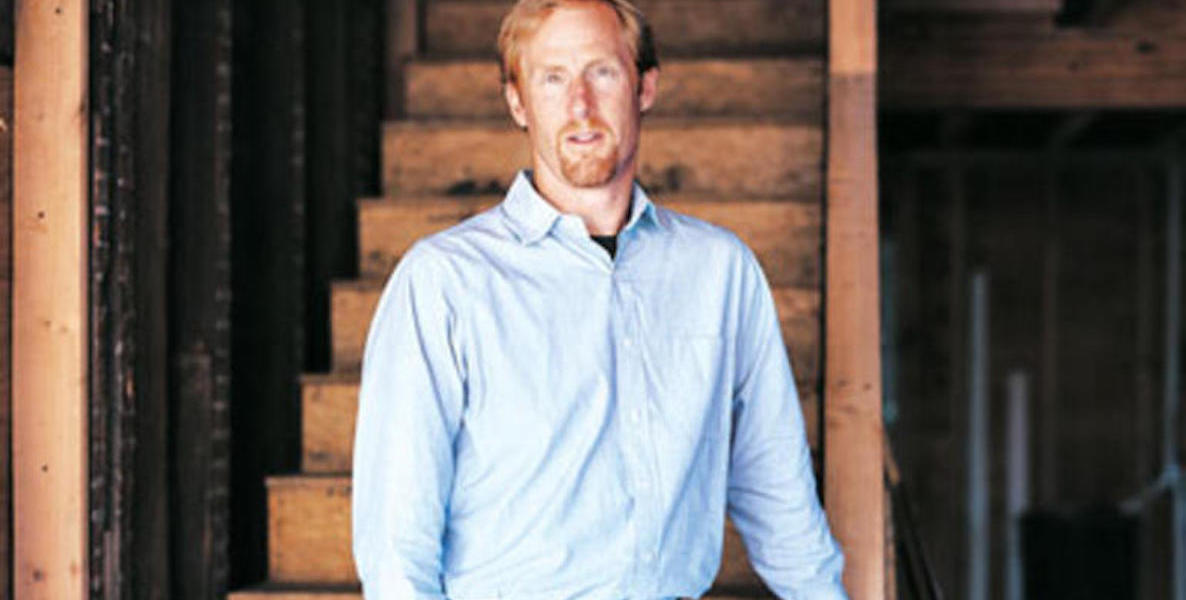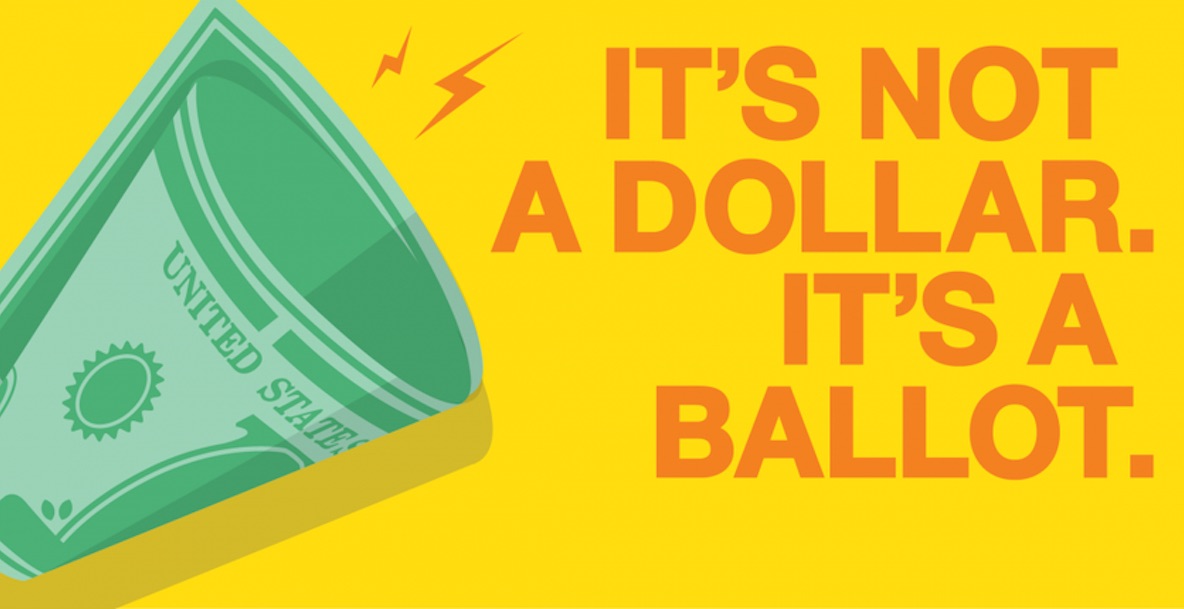On the day after the midterms, as we headed into the biggest shopping time of the year, the community of Certified B Corporations launched a new public engagement campaign called Vote Every Day. This campaign reminds all of us that we have voice and power beyond the ballot box
Not only can we use our power and vote to elect politicians—we can also shape markets, by buying from, working for, and investing in companies that share our values.
In talking about the campaign, the industry pub Marketing Dive uplifts how values-driven marketing from companies whose actions align with their values can attract consumers (nearly two-thirds of consumers worldwide now buy on beliefs) and drive valuation (companies with a high sense of purpose have 2x brand valuation compared to the median). The article points out that “consumers—especially younger ones—are demanding that brands take a position on social and political issues, especially in the current divisive climate, and are letting a brand’s stance on issues impact their purchases.”
Business leaders can give people the power to vote for a living wage for every worker, to vote for paid family leave that benefits every newborn child, and to vote for a clean-energy future that helps create a more shared and durable prosperity for all of us.
However, as voters can only vote for the candidates who appear on the ballot, consumers can only vote for the products that appear on the shelves. As business leaders, we have the power to give consumers, workers and investors more choices to vote for what they believe in.
Through our business decisions, business leaders can give people the power to vote for a living wage for every worker, to vote for paid family leave that benefits every newborn child, and to vote for a clean-energy future that helps create a more shared and durable prosperity for all of us.
Because of the vast impact of these business decisions, some might say that as business leaders we get more votes and our votes count more than others. We not only vote like everyone else with every consumer purchase we make, but we also vote every day with every decision we make about how we operate our companies and with whom we choose to do business. And those decisions impact hundreds, thousands, even millions of people each and every day.
But how often do we have real conversations—I mean kitchen table conversations, not conference table conversations—about this vast impact and the role our choices as business leaders have in creating the world we live in every day?
It’s time we had a chat.
Who Are We Voting For?
When I was CEO of AND 1, a basketball footwear and apparel company that had its heyday back in the late ’90s and early aughts, we decided that we cared about how the people who made the shoes we sold were treated. We decided we cared about how those young women were treated even though our consumers (teenage males) and our customers (sporting-goods retailers), and our investors didn’t seem to care about that at all. (They may now; they didn’t then.)
Every single day, you put money into the hands of other people. And by doing so, you tell them to keep doing what they’re doing.
As a business that viewed itself as a family, we expanded our notion of family to include the thousands of workers in the factories that made our footwear and apparel. AND 1 used factories predominantly in Asia—Thailand, Vietnam, Taiwan and China—with the vast majority of workers making our footwear in China. At our peak, roughly 10,000 young women, predominantly 18 to 22 years old and from the countryside, were making AND 1 basketball shoes, and thousands more were making the company’s shorts, tanks, warmups, sweats and other apparel.
Back in the mid- to late 1990s, sweatshops were much in the news, with activists appropriately taking aim at well-known brands like Nike and retailers like WalMart. While AND 1 was still very much under the radar and not a likely target for media-seeking activists, we decided that adopting a best-in-class supplier code of conduct was one of the big initiatives we would undertake as part of bringing the AND 1 Service Mission to life.
![]()
Our head of production quickly led us up the learning curve on this issue and recommended that we partner with Verité, the leading third-party auditor of supply-chain human rights and labor practices. Verité took a partnership-for-continuous-improvement approach, rather than a punitive-for-starting-below-the-bar approach, that felt consistent with AND 1’s values, and engaged both AND 1 and our factory partners on issues beyond fair pay. After some socializing of this new initiative among our suppliers, we held our first gathering of all of our global suppliers in Taiwan at which we introduced the concept of an AND 1 Factory Code of Conduct.
With Verité leading both scheduled and unscheduled onsite factory audits, AND 1 was able to feel confident that the many thousands of young women making our products were treated fairly in healthy working conditions. To keep it up meant checking the books to ensure that hourly wages were consistent with local laws, that the women were paid appropriate overtime wages, that total hours worked did not exceed a certain amount per week, and that workers were given full holidays to visit their families in villages typically far away in the interior of the country.
There’s power in the ballot box. But there’s far more power in your inbox.
Beyond compensation issues, Verité also looked at working conditions in the factory, such as natural light, ventilation, toxic substances used in the manufacturing process, and well-lit and always-open-from-the-inside EXIT doors in case of emergencies. (Google “Bangladesh factory fire 2012” for what can happen without open EXIT doors). In addition, Verité reviewed living conditions in the dormitory-style rooms, including access to health care, recreational facilities and more.
Lastly, as a best practice, AND 1’s Code of Conduct also included a modest budget to support financial literacy training and English lessons for any factory workers. The former helped factory workers better monitor compensation practices and manage their earnings; the latter facilitated their acquisition of skills useful to upward mobility.
![]()
Did adopting these best-in-class supply chain practices help AND 1 develop deeper relationships with our sourcing and factory partners? Yes. When our business hit road bumps like all businesses do, our partners extended our lines of credit. When our business had accelerating demand to meet—narrow shipping windows in which to meet it—our partners found additional production space. Did adopting these best practices help AND 1 attract and retain the best talent? Yes. People were proud to work at AND 1 because we treated people like we would want to be treated.
But that is not why we adopted these practices.
We voted for those 10,000 young women because we voted for the kind of company we wanted to work for. We voted for the kind of company we knew would make our parents and our kids proud, not only of what we had built, but also of how we had built it.
Your Inbox Is a Ballot Box
The Vote Every Day campaign is, for now, focused on engaging people as citizen-consumers to use their purchasing power to create the world they want. Now I want to take the time to sit across the kitchen table and talk with my fellow business leaders. Here’s what I’m thinking
“OK, business leaders, we need to talk.
The midterms seem forever ago, and you’re probably planning for the new year.
Good. You’re in the right frame of mind.
As you take time to reflect on what you’re thankful for, on your priorities for 2019, on what mark you want to leave on the world, on what example you want to set for your kids and grandkids, remember this:
Every day you go to work, you vote.
Every day you decide to do this instead of that, you vote.
Every day you decide to invest in this instead of that, you vote.
Every single day, you put money into the hands of other people. And by doing so, you tell them to keep doing what they’re doing.
If you make clothes in unsafe factories paying unfair wages, you’re telling them to keep doing what they’re doing.
If you serve food that isn’t healthy for your customers, the farmers or the land, you’re telling them you don’t expect better.
If you use a contractor or a law firm that doesn’t offer primary caregiver leave, you’re telling them it’s fine to put families second.
Hopefully, you did vote in the midterm elections in November. But whether you did or didn’t vote in the midterms, you did vote a few weeks ago. And you voted last week.
And you’ll vote next week, and the week after that. And the week after that.
And you do have a choice.
That refreshing beer you make could be made by employee-owners using renewable energy.
That clean office you work in could be green-cleaned by people earning a fair wage with benefits.
That would-be unicorn you invested in could have been led by a woman, a person of color, or someone working to create a level playing field.
This isn’t a Blue thing or a Red thing. It’s a Human thing.
When we all choose to build, invest in and do business with these kinds of companies, we’ll start to see things change. We’ll start to breathe better, eat better and feel better.
There’s power in the ballot box.
But there’s far more power in your inbox.
If you’re not sure how to begin, email me and I’ll put you in touch with a B Corp leader or two who are eager to help you learn how you can vote every day.”
Let’s make all of our votes count.
Jay Coen Gilbert is co-founder of B Lab, a global movement of people using business as a force for good. This article first appeared in Forbes.
Credit: Shani Tucker, B Lab






